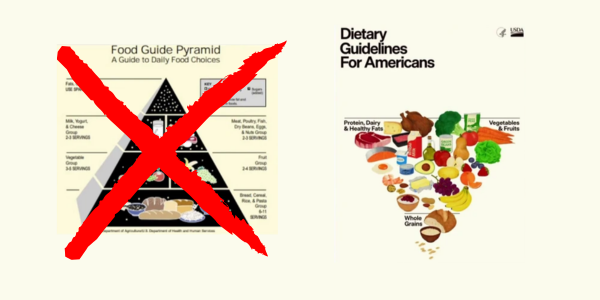



The history of medicine at best is assorted. Just 100 years ago medicine consisted of alcohol, opium, heroin, morphine, cocaine and cannabis. The history is clearly talked about in the book Pharma: Greed, Lies, and The Poisoning of America by Gerald Posner. A worthwhile read.
There have been disasters in medicine, like thalidomide, but also life savers, like insulin – and then everything in between. It’s not an industry that is out to kill but rather to help save lives, but it is an industry that has taken over healthcare.
The mantra seems to be ‘eat anything you want, be neglectful in your lifestyle and when you get a symptom, come on in for the miracle medicine. Pop a pill and you’ll be better’. But the symptom is not always the best place to start. The cause is probably a more important part of the equation.
It’s more the norm than the exception to the rule to give a medication for a symptom rather than looking at the cause. Babies, children, teenagers, adults and the elderly are all targeted.
How Pharmacy Has Changed
When my dad was a pharmacist back in the 50s the people that took most of the medications were the elderly (although he has memories of a cousin in his twenties dying from a reaction to penicillin).
He recalls that his change of career from pharmacy to chiropractic was punctuated by two incidences.
The first, when a lady in her seventies, spritely and without much malaise, entered his pharmacy for a medication. It was her first. Over the ensuing year, she kept coming back for more and more medications prescribed by her doctor. He realised that many of the prescriptions were for side effects of previous prescriptions.
The second incidence was a middle-aged man who took Pepto-Bismol for his indigestion. One day my father realized, after greeting him in the street, that he hadn’t been in to get more of his medicine. The man told my father that he had gone to the ‘quack’ up the road and had fixed his indigestion and there was no more need for the pink medicine. The ‘quack’ up the road was a chiropractor. Being curious, my dad went to see him and was convinced that this was where he wanted to go in health care. He travelled to Iowa, USA, and studied to become a chiropractor.
I was bought up with the fear of medicine. It would have to be an emergency situation before my dad would allow any medications. He believed fevers, colds and pains all primed the body for bigger pains and bigger diseases in life. We did not take a pill for anything.
My siblings and I were also not tempted by psychedelic drugs when we reached our teens, even though they were at every party at university as well as offered to me toward the end of my high school years.
My father believed that we will never get rid of the drug problem in the street until we get rid of the drug problem in the home. The drug problem we have in the home is far worse than what we have on the streets, it’s just not recognised until you see the statistics: The average Australian who lives to their mid-seventies will pop 48,000 pills in their lifetime. Someone is popping my share, therefore some are popping more than others.
Impact of Pharmaceuticals in the Home
A new study has come out that shows that the taking of what is assumed as a ‘harmless’ painkiller, paracetamol, during pregnancy has an increased chance of delivering a child with autism spectrum symptoms and ADHD.
Before I talk more about the study, it’s important to pause and realise that we are all individuals and that is why not 100% of children born to women who took paracetamol during pregnancy have autism or ADHD. Microbiologists believe that it has a lot to do with the health and status of the microbiome.
Microbiome status can determine whether a drug has efficacy and/or toxicity in a given patient and it can determine the physiological response to certain foods and supplements.
The microbiome is diverse and every week we learn something new, but we don’t know everything yet. The modern world is eroding a healthy microbiome status and it is only by looking at people who are not exposed to ultra-processed foods and chemicals that we begin to have an idea of what a healthy microbiome might look like.
We are still a long way from testing the status of a microbiome and declaring the human that holds the microbes is safe for vaccines, pharmaceuticals and toxins in the environment, or the opposite in that they are vulnerable and caution should be heeded.
Paracetamol is also called Acetaminophen. It’s interesting to note that the description of this drug says that it is an analgesic (pain reduction) and antipyretic (fever reduction), although the exact mechanism through which it works has yet to be determined. There is a belief that acetaminophen may inhibit the nitric oxide pathway, thereby increasing the pain threshold.
Nearly 74,000 mothers were assessed in the recent study (May 2021). The exposure of prenatal and postnatal children (up to 18 months) to acetaminophen was assessed through a maternal questionnaire or interview.
Results indicated that children prenatally exposed to acetaminophen/paracetamol were 19% and 21% more likely to subsequently have borderline or clinical autism and ADHD symptoms compared to non-exposed children. The children’s exposure to acetaminophen postnatally was not associated with autism and ADHD. These results replicate previous work and support providing clear information to pregnant women and their partners about potential long-term risks of acetaminophen use.
I did not see this as front page news in our major national paper, warning pregnant women not to take this painkiller. Another interesting fact is that this study has taken well over a decade for the findings to come to light. Children as old as 12 were assessed. Yet an untested human experimental vaccine is being promoted for pregnant women. In my way of thinking this is malpractice at best.
Exposure of an unborn fetus to paracetamol is vastly different to exposure after birth, therefore the consequences to the unborn child of an experimental vaccine may not be seen for another decade. How many of our children may have serious mental and physical health consequences? Time is our only gauge. It saddens me to think that this is happening to our vulnerable babies.
The dietary considerations for pregnant women are also interesting. They can’t have white cheeses and one-day-old chicken, but vaccines and pharmaceuticals are okay. Where is the logic in this?
I understand with food it is all about the listeria, but the introduction of listeria when the microbiome status is healthy poses no threat, as opposed to when it has been decimated.
I also understand that sometimes there is a need to medicate for the health and safety of the mother, but we should limit exposure to medications, vaccines, agricultural chemicals, toxic personal care products and ultra-processed foods for the pregnant women.
Commonsense and a midwife’s/obstetrician’s advice should be upheld to ‘first do no harm’.
Cyndi O’Meara



The way the soil, water and plants support each other and create a healthy system really reflects the amazing system within the human body and how we can nurture it through what we do and what we eat.

Head on over to our website and check out the important blogs written by Cyndi and guest writers to learn more about your health and the food industry.
↳ follow the link in our bio

You`ve heard the saying `you can`t pour from an empty cup` but do we really internalise it? This year, try committing to yourself the way you want to commit to your partner, children, work, or wider community.

It all sounds complicated, but to your body it`s an inherent and automatic part of the process, its innate! We can use language to understand what`s going on in our bodies and explain the magic of the system that keeps us alive.

Has The Nutrition Academy changed your life the way it did for Lee? Please let us know by leaving a review on Google or shooting us a DM — we would love to share your story with our community!
↳ follow the link in our bio

If your goals this year include managing your weight, don`t turn to laboratory-made shakes, make your own! Cyndi suggests blending an egg and some fruit together for a protein boost, or high-satiety fruit likes apples, bananas and avocados blended with Greek yoghurt and water. Low ingredients and high nutrition is ideal if you`re looking to chase good health.

To all of our students, how can we support your studying journey this year? Let us know below!

It is a phenomenon for humans to find novelty and newness inspiring. This `temporal interruption` of the daily drudge inspires us to change our life, but you can change your life in any way and any time you want. You have the power over your own life, not the flip of a calendar.

You may think the food you ate or the way you lived five years ago should not have an effect on how you live now, but unfortunately the body is too clever for that. This is one reason why consistency of good habits and good health is even more important than perfection or fad diets.

Foraging is an amazing skill that many people should learn for a variety of reasons. Have you had much experience with `living off the land`?
